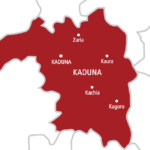Less than a year ago, the government’s 364-day treasury bill was near one per cent. You could say that funds were cheap then, and they truly were. Whilst the low interest rate may be attributed to the Central Bank of Nigeria’s approach to reflating the economy and mitigating the impact of COVID-19, the question is what exactly has changed in policy to warrant the spike in interest rate?
Fast forward to the present time: The rates have more than spiked; the 91-day treasury bill now attracts rates of about 2.5 per cent, with the six-month and one-year bills having rates of about 3.5 per cent and 7.5 per cent, respectively.
Looking at the graph, it is clear that the rates are on their way back to where they were two years ago and earlier. They are rising and the reason is obvious, says Dr. Bong Adi, Senior Lecturer in Economics at the Lagos Business School. “The rates are not going up on their own. The government is looking for money. They are borrowing money from everywhere,” he says.
Adi says the low interest rates that prevailed in the last two years must have been part of the central bank’s efforts to encourage investments in the real sector. “But it didn’t.”
“Investments in the real sector will happen when there is security in the land, when there is some little bit of predictability in the land, when you can understand policy,” says Adi.
When you talk about real sector investment, you are talking about manufacturing and other non-financial productive activities.
That Nigeria has been on a borrowing binge is no longer news. Even before the COVID-19 pandemic, the country was already deep in debts.
The 2020 budget deficit was mainly funded by borrowing and so also a major part of the 2021 budget is being financed with debt. The government has borrowed so much that it broke its own law, the Fiscal Responsibility Act, of limiting the budget deficit to a maximum of 3 percent of GDP.
Furthermore, the revelations that came out of the budget presentation that we used about three-quarter of the revenue to service debt in the first eight months of this year is unsustainable in fiscal policy management. For next year, the government has made an estimate of N3.61trn for debt servicing.
With a projected total revenue available to fund the budget put at N10.13trn, this gives a debt service-to-revenue ratio of 35.64 percent. And given that it is more likely for debt servicing to rise and also revenue to underperform budget as it has always been the case, there is a greater chance of this debt-to-revenue ratio to remain elevated at current level, reinforcing the nation’s debt service burden.
Although the government is borrowing and will continue to borrow so much, shouldn’t there be ways of keeping interest rate low like we had last year? This will help to reduce the debt service burden for the government and reverse current realities where most of the actual revenue is going into debt service with little or nothing left for running the government, not to say of building the much needed infrastructure?
Away from the public sector, rising interest rates are a double whammy for the private sector. As interest rates rise, companies pay more on their loans and have limited access to capital. BUA Group, which raised N105 billion 7-year bond from the capital market in December 2020 at 7.5% would possibly have to pay 13% or more today if it were to borrow at the same terms.
Worse still, as the higher interest rate heightens the debt service burden of the government, the pressure is mounting on businesses to pay more taxes, as seen in the aggressive war on taxes, even between States and the Federal Government.
Nigeria’s case study is always mind-blowing, as nothing much seems to have changed to cause the rising interest rate environment. Inflation is gradually easing, though still very high and the monetary policy authority has reiterated that current inflationary pressures are reflective of structural challenges with little or no monetary policy solutions.
External reserves are rising, although the value of Naira continues to weaken at the parallel market. So, the only explanation for the higher interest rate seems to be the need to attract FPIs and stem the urge of Nigerians to buy foreign currency due to the low returns on naira-denominated assets.
Abiola Rasaq, a Lagos-based financial analyst, notes that “the CBN is stuck between a rock and a hard surface”. It wants to sustain the low-interest rate environment to lower the cost of capital for corporates and the government, although it has a primary responsibility of stabilising prices, especially the value of the Naira, which has been under some speculative pressure over the past few months, with notable loss in the parallel market.
Hence, the rising interest rate may perhaps reflect the compromise of the CBN to attract FPI and FDI to the country, especially as both capital flows have been at new-lows in recent times. FDI in the second quarter was barely $0.8bn or 0.18% of GDP, a level insignificant to complement domestic investments, required to catalyse capital formation needed to bridge job and output gaps.
Foreign portfolio inflows into bonds and treasuries have also been weak. Hence, raising rate helps to re-attract FPIs, stem the rising demand for foreign currency from foreign fund managers seeking to repatriate their matured investments rather than reinvest at low rates while also helping to stimulate domestic investors’ appetite for naira-denominated assets and reduce speculative investments in foreign currencies and foreign currency-denominated assets.
According to Rasaq, the current rising interest rate is an offshoot of exchange rate-management priority of the CBN at this time.
“Moreso, global interest rates are rising, as central banks in developed markets signal gradual return to policy normalcy to address the global information syndrome. Hence, keeping domestic interest rate low will further reduce the real interest rate differential on naira-denominated securities and heighten the capital flight, if the CBN were to maintain its 2020 stance of keeping rates at such historic low levels, where yields on USD-based assets were almost at par with naira-denominated instruments,” Rasaq added.
If Rasaq’s conjecture is true, and which reflects that the Naira is really the big elephant in the room, what policy options are the CBN left with? Can we make compromises to keep interest rates low to stimulate economic activities and hopefully relieve the public sector of the high debt service burden which may hunt every Nigerian in the very near term?
Adi faults the government’s continuing foreign borrowing in this high inflation and exchange rates environment. The government projects a 13 percent inflation rate for 2022, but for now it is in the region of 17.38 percent. The naira continues to lose value at the parallel, even so the government’s projected rate of N410.15/$ for the 2022 Budget. Unchecked borrowing at these levels of interest rate means that the government may resort to printing more naira at some point to repay these obligations, which will worsen the already obstinately high inflation rate and volatile exchange rate situation.
It is perhaps a time for the fiscal and monetary authority to strengthen coordination and enhance practical policy orientation and outcomes towards a sustainable Nigeria that guarantees better future for current and future generations.




